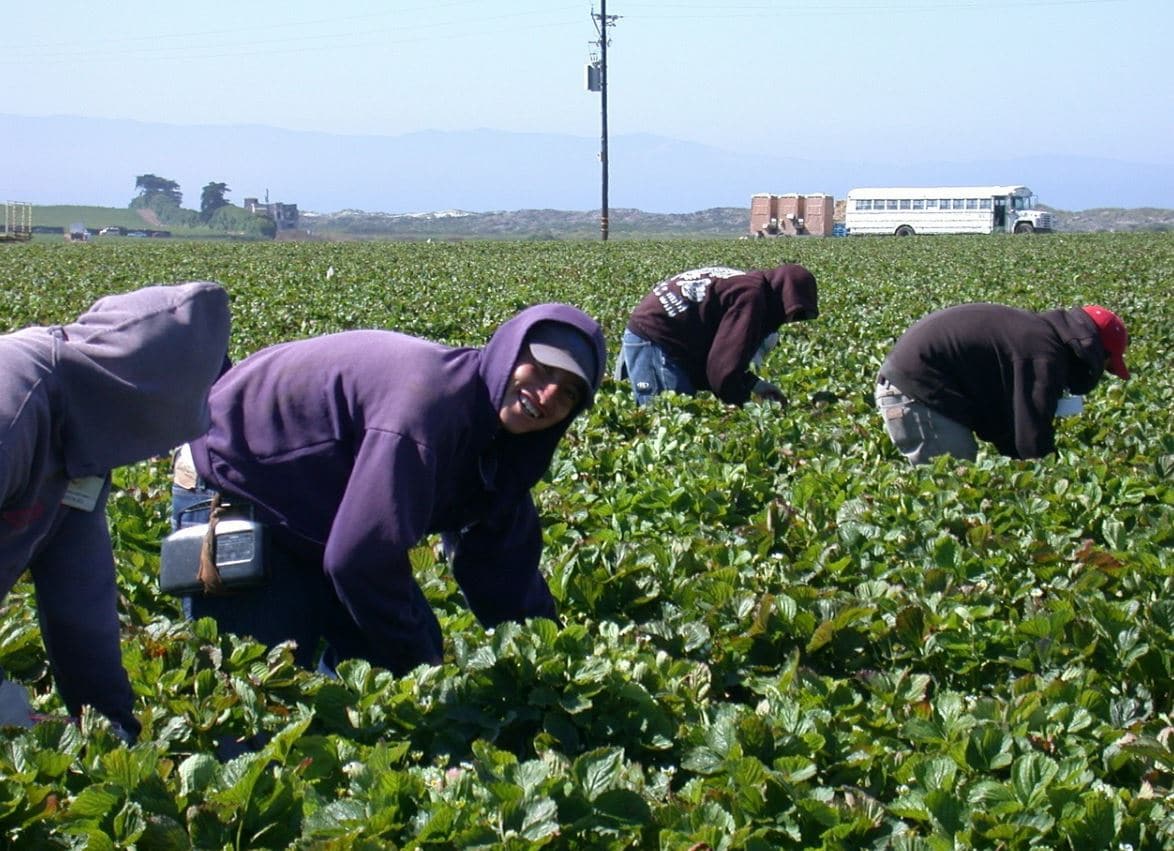Turning a Blind Eye to ‘Restricted Use’ Chemicals – Agricultural Workers at High Risk
COMMENTARY

The agricultural sector has been facing an accelerated transformation over the past years, rapidly enhancing the multitude of options for growing successful crops.
Americans are some of the most consistent users of agricultural pesticides in the world. However, the most troublesome part is that through the struggles in controlling pests and reducing damage to crops, they are not even aware of the dangers they encounter.
Some substances are so hazardous they affect life in all its forms, over-exposure being the cause of various diseases. One of the most widely used yet extremely harmful herbicides is paraquat. According to the Environmental Protection Agency, it is classified as a “restricted use” chemical (only for licensed applicators to handle).
Paraquat has been used throughout the U.S. since 1962 and is currently sold under the name Gramoxone. It is also known as Devour, Bonedry, Firestorm, Parazone, Helmquat, and many others.
The importance of understanding the many faces of this weed killer is mirrored by further insight on its active ingredient, which is found in other herbicides as well, like Simazine and Diquat dibromide.
Before 2017, when the EPA modified terms for paraquat use, the rules were completely different and much less restrictive, allowing unqualified agricultural workers to apply it themselves. This led to overspray, which expanded its damaging effects to include farmers who did not handle the paraquat, making them secondary exposure victims.
This substance operates in two ways: through poisoning and exposure, both with tremendously damaging consequences. The distinction between paraquat poisoning and exposure is in the swiftness of the effect. In the first scenario, the result is immediate (“One Sip Can Kill” warning displayed on the label), while the second one occurs over time.
Symptoms of poisoning include pain and swelling of the mouth and throat, while prolonged exposure (especially for those using paraquat directly) seems to ultimately lead to Parkinson’s disease.
Early signs of Parkinson’s include, among others: tremors, trouble moving or slow walking, dizziness or fainting, loss of smell and balance troubles. Eventually, the damage caused to neurons will impair essential brain functions like swallowing and breathing. The worst part is that the illness has no cure, only symptom alleviation solutions.
The risks faced by agricultural workers to develop Parkinson’s disease after being exposed to paraquat are 2.5 times higher than unexposed people. This number is also enhanced by the occasionally precarious labor conditions and improper labeling that fails to warn users about the potential associated dangers.
Therefore, manufacturers have the duty to inform consumers of the hazard of using their products, especially if human lives are at risk. A rising number of individuals in contact with paraquat have been diagnosed with Parkinson’s disease, like farmworkers, herbicide applicators, crop dusters, chemical mixers and tank fillers. This comes from the product’s toxicity and makers’ disregard for associated health risks despite research and adequate warnings.
Prevalence of Parkinson’s Disease in the US
Florida is one of several states that extensively use paraquat for many essential crops. Only licensed applicators who successfully pass a training program can handle the chemical substance.
The Coalition of Florida Farmworker Organizations and The Farmworker Association of Florida, along with several other reputable coalitions, signed a 2019 letter opposing the re-registration of paraquat because of the pesticide’s adverse effects and vital interest in protecting the population and environment. However, this document did not receive the much-deserved consideration from the concerned authorities, especially since the change of administration.
An alarming fact is that, while at least 32 countries have already banned the use of paraquat, usage in the U.S. is expected to increase in the following years, and so are Parkinson’s cases due to exposure to the chemical.
There are 60,000 people diagnosed with Parkinson’s every year in the United States. Still, since it is difficult to detect the disease in its early stages, it is hard to determine just how many people have the condition.
According to a study conducted by the Parkinson’s Foundation Parkinson’s Prevalence Project, the predicted number of people in the U.S. living with Parkinson’s disease by 2030 will rise from nearly 1 million to 1.2 million.
Florida and California rank first and second as the states with the highest number of people with Parkinson’s in the U.S. In Florida alone, there are currently 64,000 estimated people with Parkinson’s, 38% higher than in California.
Even though there are alternatives to pesticides, such as more organic approaches, or the implementation of other technologies, these damaging substances continue to negatively impact the environment and, along with it, human life.
While manufacturers continue to turn a blind eye to the harmful effects of paraquat exposure, claims against the chemical manufacturers by those affected from exposure who also developed Parkinson’s disease keep piling up.
Miguel Leyva is an advocate for agricultural workers who have been injured by paraquat, working to help them and their families. Mr. Leyva coordinates the case management activities at Atraxia Law, where he gathers and organizes victims’ relevant information about paraquat exposure and Parkinson’s disease. You can reach him via email at [email protected].























